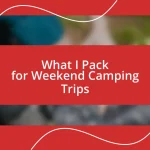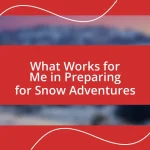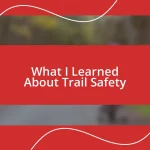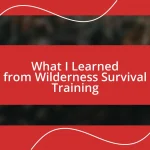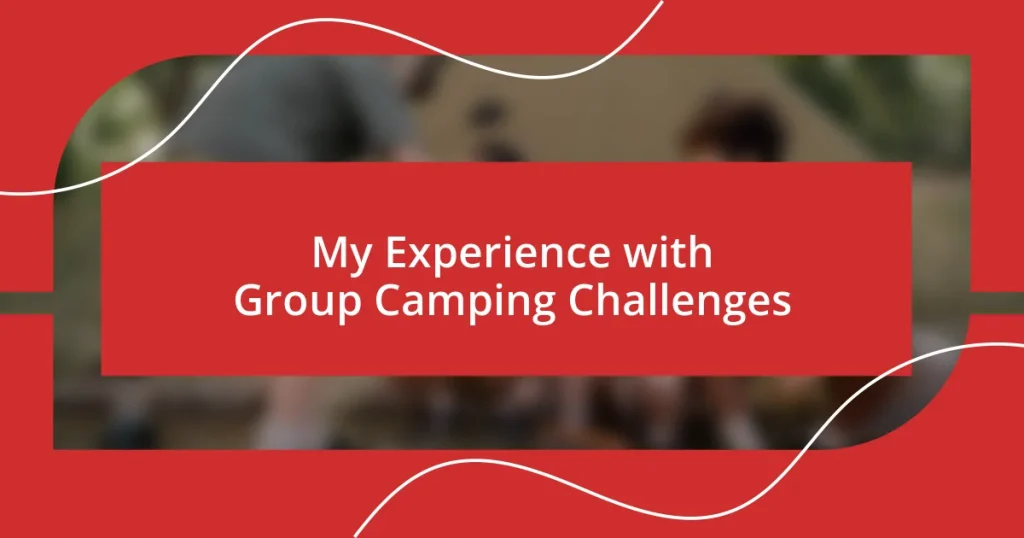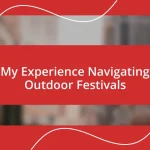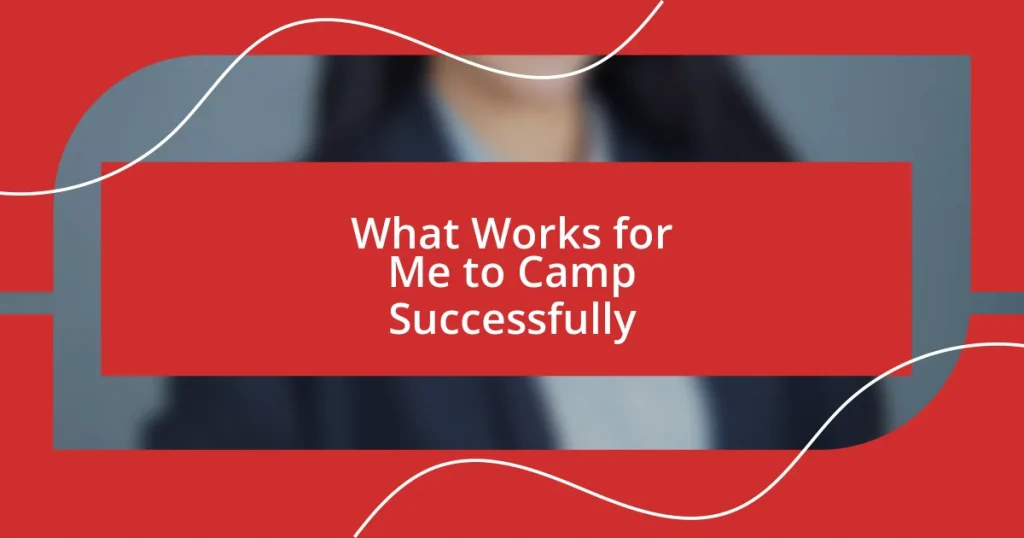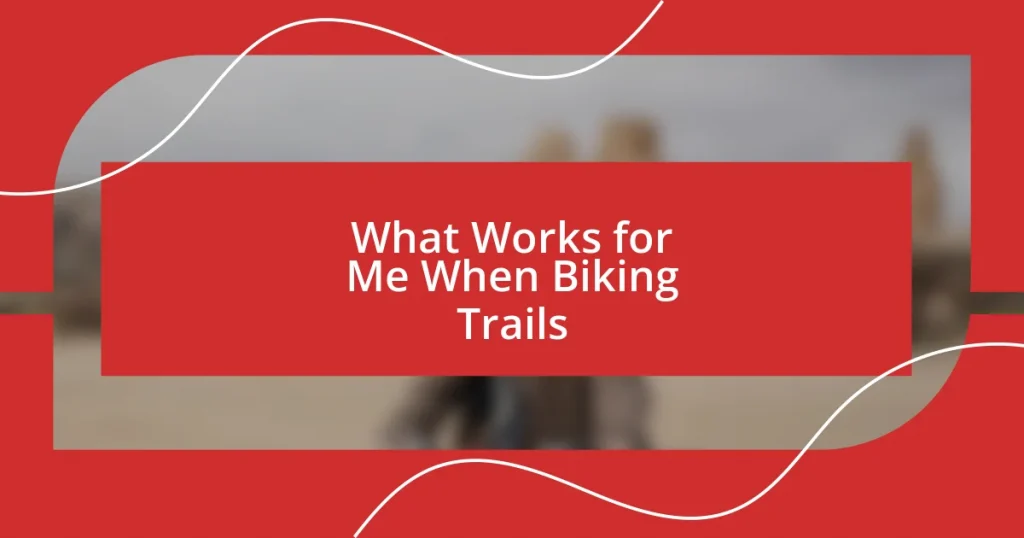Key takeaways:
- Effective communication is vital in group camping, improving task coordination and enhancing the overall experience.
- Challenges, such as gear mishaps and food disagreements, present opportunities for growth and bonding within the group.
- Resolving conflicts through empathy and humor fosters camaraderie, transforming potential disputes into shared joyful moments.
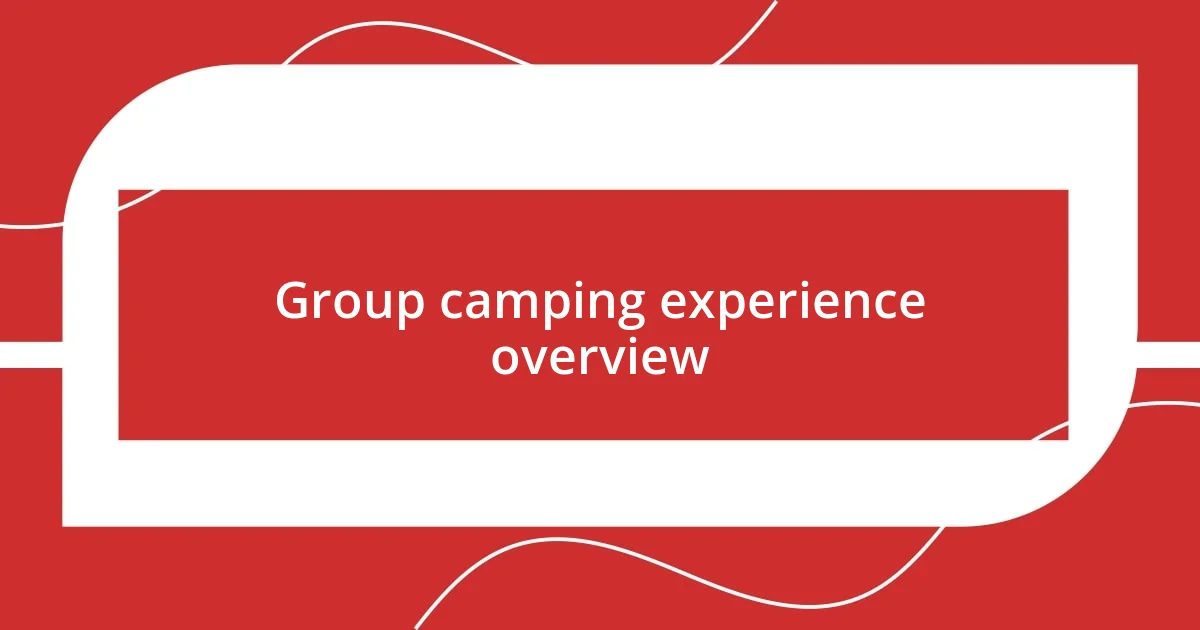
Group camping experience overview
Group camping can be an exhilarating experience, filled with laughter and camaraderie. I still remember the time my friends and I set up our tents in a secluded spot near a lake; it felt like we were in our little world. But, as it turned out, sharing that space wasn’t just about the good times—it came with its own set of challenges.
One night, after a long day of hiking, we had hoped to share a peaceful evening under the stars. Instead, we found ourselves grappling with differing opinions on where to build the fire. Have you ever experienced that moment when passionate discussions turn into a comical debate? Our negotiation skills were put to the test, and I learned just how vital clear communication is when camping with a group.
Ultimately, the experience taught me that challenges are simply part of the adventure. I recall a moment when we all worked together to solve a problem—like fixing a broken tent pole at 2 a.m. That sense of teamwork, born from those hurdles, created bonds that I cherish to this day. Isn’t it fascinating how adversity can bring us closer together?
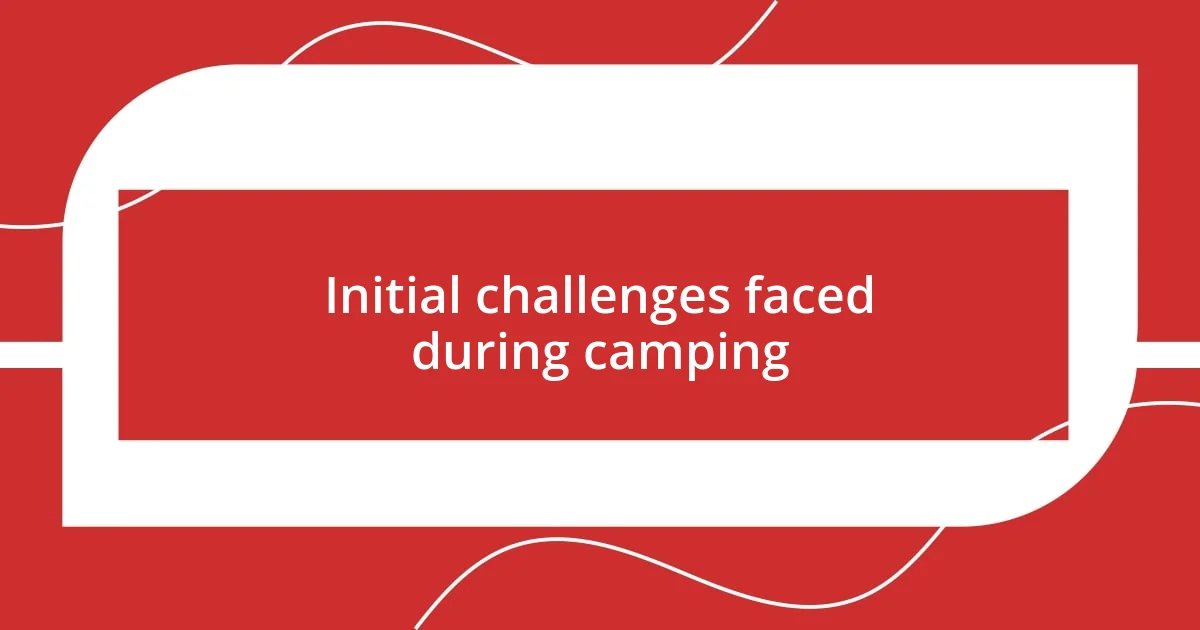
Initial challenges faced during camping
The initial hurdles of group camping can really throw your experience off balance. I remember our first dawn in the wild—a glorious sunrise but a disheveled camp as we scrambled to find missing gear. Forgetting crucial items, like a proper stove or even a first-aid kit, turned our campfire breakfast into a test of improvisation. It definitely added an unexpected twist to the trip!
Here are some of the challenges we faced right out of the gate:
- Tent setup chaos: With everyone tackling different aspects, we ended up with tents pitched haphazardly, leading to a game of “guess which one is mine.”
- Missing gear: Several key items were left behind—like a compass. We certainly learned the hard way how important it is to double-check packing lists.
- Food disagreements: Everyone had their preferences, which led to some comical yet heated discussions about meal plans before we finally settled on a compromise.
It was eye-opening to realize that, despite the initial problems, each challenge was an opportunity to grow as a group. The laughter and learning we shared in those moments felt just as fulfilling as the breathtaking views around us.
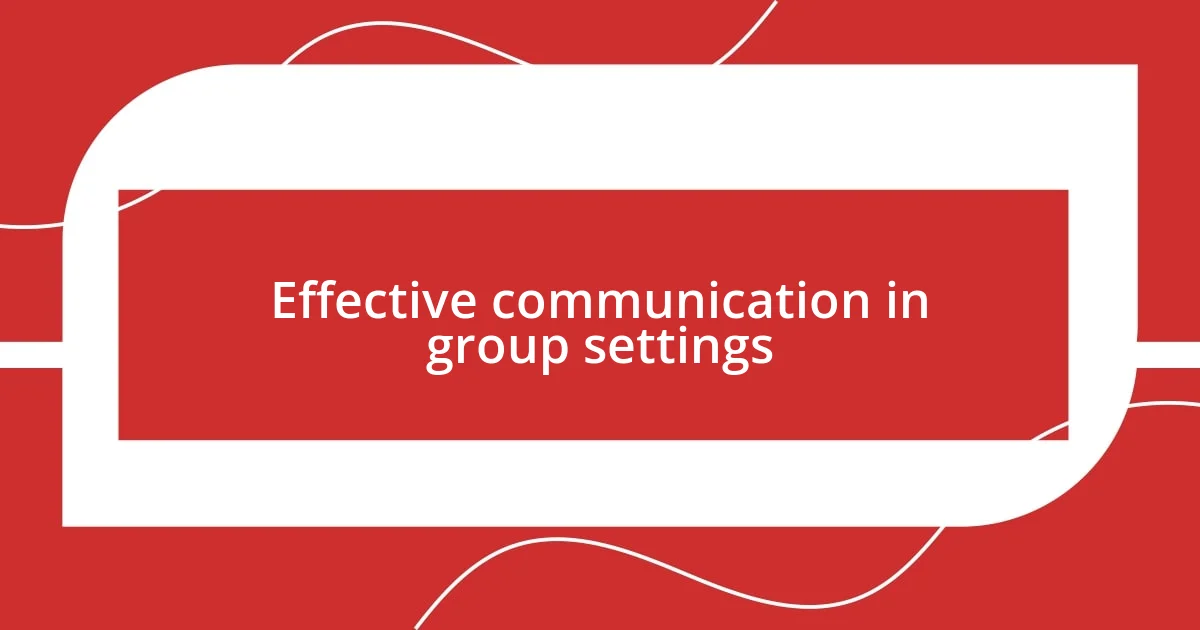
Effective communication in group settings
Effective communication truly stands as the backbone of a successful group camping experience. I clearly recall a moment when we had to decide whether to hike to a nearby waterfall or stick around our campsite. It turned into an hour-long discussion, blending excitement with frustration. I learned that, in such settings, taking a moment to gather everyone’s opinions first could have saved us time and let everyone feel heard. Isn’t it amazing how sharing thoughts can change the dynamic of a group?
When it comes to coordinating tasks, clarity is paramount. During our camping trip, we faced a situation where some friends were struggling with cooking while others were busy setting up the tent. In hindsight, a simple group huddle where we divvied up responsibilities could have eased the pressure on everyone. I can’t stress enough how vital it is to communicate effectively— setting priorities and acknowledging each person’s strengths not only boosts morale but also enhances efficiency.
I also found that humor plays a significant role in communication. On one particularly chaotic night, we misinterpreted a friend’s suggestion about a specific camping tool. It led to a round of laughter about making gourmet mushroom risotto over a campfire instead of just roasting marshmallows! That lighthearted moment not only eased the tension but also reinforced our connection. After all, enjoying the little quirks of communication helps create memories that last far beyond the trip.
| Aspect | Importance |
|---|---|
| Listening | Understanding diverse perspectives and preventing misunderstandings |
| Clarity | Ensuring everyone knows their tasks and responsibilities |
| Humor | Dissipating tension and fostering camaraderie |
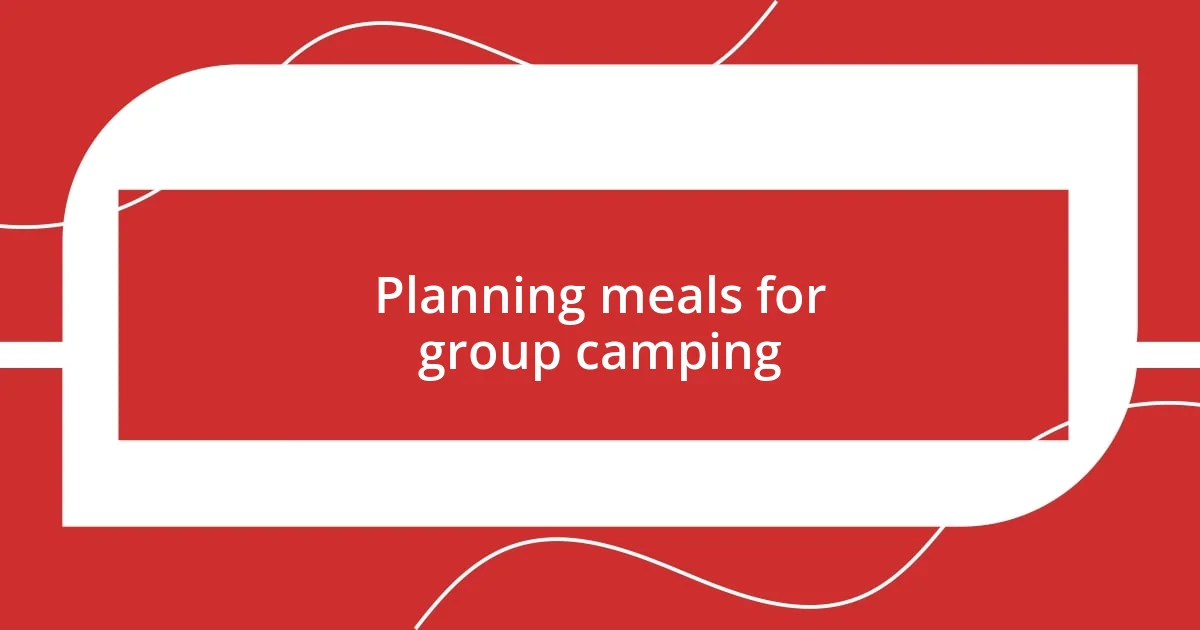
Planning meals for group camping
When planning meals for group camping, I found that simplicity often reigns supreme. One trip, we decided to go all out with gourmet recipes, which quickly turned into a logistical nightmare. Imagine opening several bags to a chorus of “I thought you were bringing the spices!” It’s crucial to find common ground in meal choices—everyone wants to enjoy what they eat, but a narrow selection can save a lot of confusion and disappointment.
What I learned firsthand is the power of meal prep. For our most recent trip, we tackled it head-on: each person brought specific ingredients, and we laid it all out before we hit the road. This collaborative effort not only clarified who was responsible for what, but it also built excitement around the campfire cooking we were about to share. Have you ever noticed how when everyone feels involved, it turns a mundane task into an engaging experience? This approach can turn meal planning into a fun team-building exercise.
I still reminisce about one night when we made a big pot of chili over the campfire. It was chilly outside and brought everyone together, both literally and figuratively. As we stirred the pot, we shared stories and laughter—those moments became the highlight of our trip. So, when you plan your meals, don’t just think about the food; think about the memories you want to create. Isn’t that the beauty of group camping? It’s about enjoying the experience together, one meal at a time.
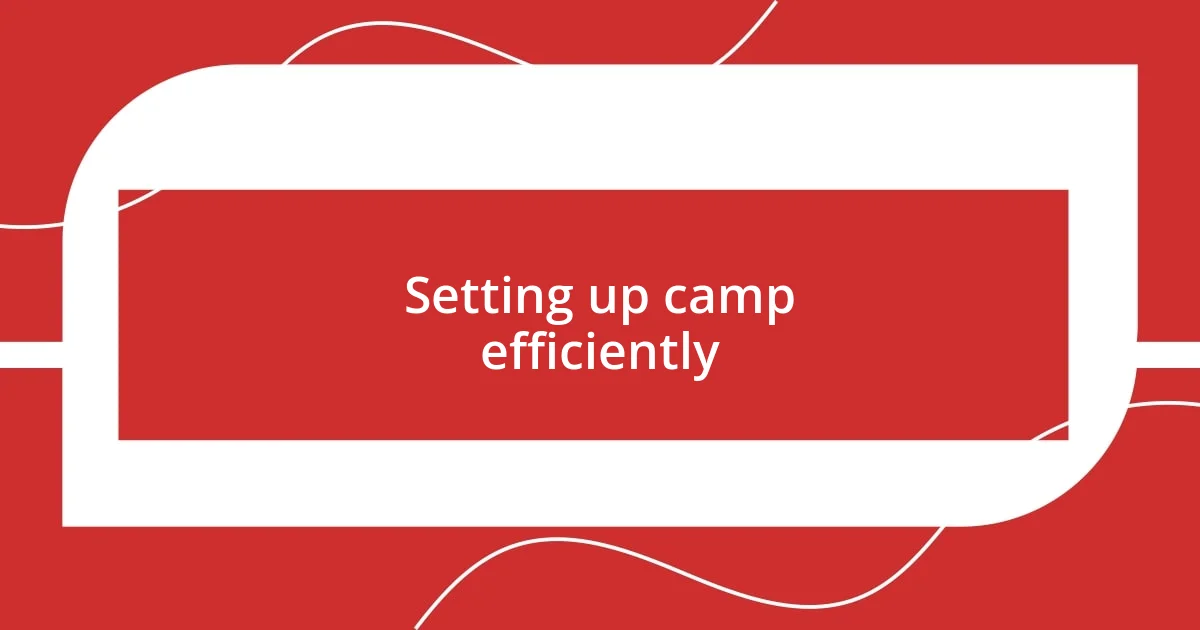
Setting up camp efficiently
When it comes to setting up camp efficiently, I’ve found that organization plays a crucial role. On one trip, we arrived at our site exhausted, and confusion quickly overtook us. I still remember frantically rummaging through bags to find the tent, when a simple plan for unpacking could have streamlined the entire process. Have you ever considered how a little order can save a lot of stress?
A tip that has transformed my camping setup is using a designated area for gear. I distinctly recall a night when we spread out our equipment—tents here, cooking supplies there—only to realize we kept tripping over backpacks while trying to set up the fire. By creating a specific zone for each task, we could work more fluidly, each contributing to the set-up without stepping on toes. It’s like a well-orchestrated dance; every person knows their part, and chaos turns into harmony.
The magic really happens when each person feels empowered to contribute their skills. For example, one of my friends is a whiz at tent setup, so we involved her from the start. This not only sped up the process but also built confidence among less experienced campers. It’s fascinating to see how leveraging individual strengths can foster teamwork while creating an atmosphere where everyone feels valued and capable. Isn’t that what camping together is all about—learning from one another while enjoying the great outdoors?
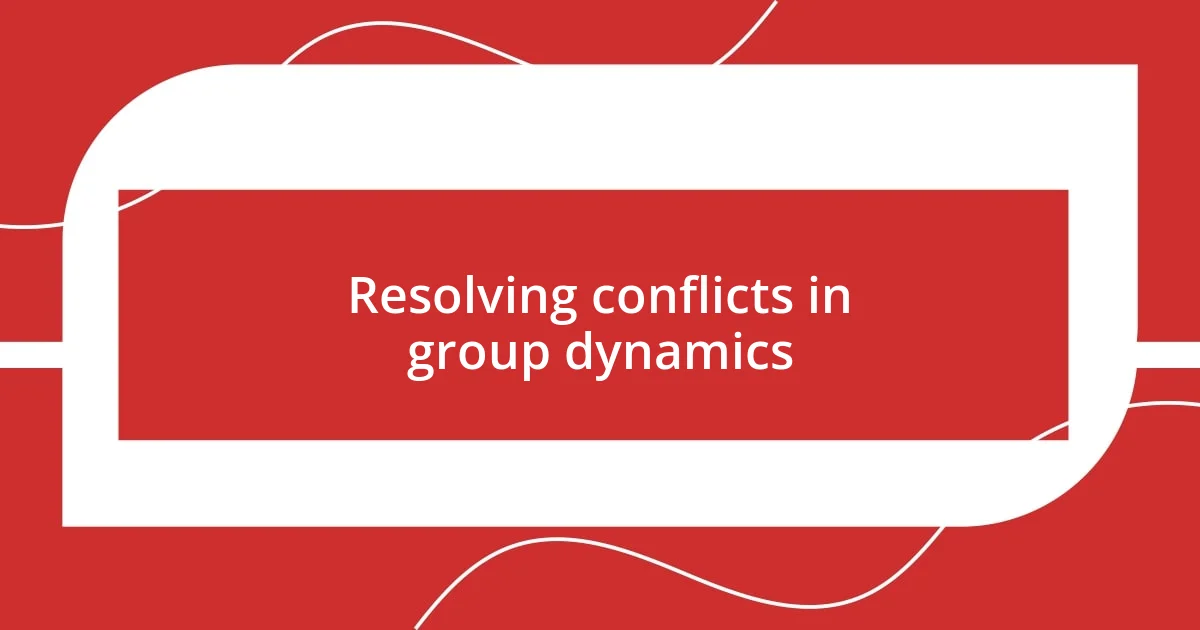
Resolving conflicts in group dynamics
Resolving conflicts in group dynamics can be tricky, especially in a camping setting where emotions run high and situations are often unpredictable. I remember one evening when tensions escalated over differing preferences for campsite locations. One friend wanted to be close to the water, while another sought the perfect spot for stargazing. Instead of letting that spark an argument, we sat down, openly discussed our needs, and eventually settled on a spot that offered a bit of both. Do you see how a little dialogue can smooth out potential conflicts?
It’s crucial to approach disagreements with empathy. Once, during a hike, I noticed one of my friends visibly frustrated with another who kept stopping to take photos. Instead of brushing it off, I intervened, reminding everyone that our shared experience was what truly mattered. After a few lighthearted jokes and understanding nods, the tension melted away. This taught me that taking the time to acknowledge emotions can transform a potential fallout into a moment for bonding.
I’ve learned that sometimes, humor can be the best conflict resolution tool. On one trip, after a heated discussion over cooking duties, we decided to lighten the mood by playfully assigning roles based on everyone’s strengths. While one friend became “Head Chef,” another took the title of “Chief Snack Distributor.” The laughter that followed uplifted our spirits, transforming frustration into shared joy. Isn’t it interesting how laughter can bridge gaps that words alone sometimes can’t?


